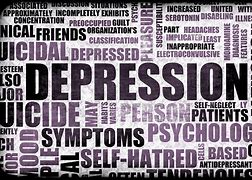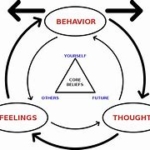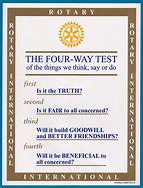
I’ve used this as a throw-away line for years in describing myself and our country. Like a few others that I tend to overuse, however, being politically clinically depressed is moving from throw-away status into something I think we all need to worry about—but also do something about.
I have also realized for some time that as someone who is a political scientist and a peacebuilder, I both have a particular obligation to help figure this out and supposedly have a unique set of skills that she help me do so.
Last week’s presidential debate forced me to actually write and do something about our disorder which really isn’t a disease because it actually makes sense to be (politically) clinically depressed as NBC’s Chuck Todd pointed out a year ago.
But then as I sat on its implications for a couple of depressing post-debate days and tried some ideas out on a bunch of people including my therapist, I realized that there are some social and political “therapies” that we can turn to that include but take me beyond the toolkits whose origins lie in my two professional homes.
Assuming that we make it through this campaign and whatever happens after election day.
Assuming that you make it to the end of this post as well.
Political Clinical Depression?
The Cleveland Clinic defines clinical depression as:
Clinical depression (major depressive disorder) causes a persistently low or depressed mood and a loss of interest in activities that you used to enjoy. The symptoms must last for at least two weeks to receive a diagnosis. The condition is treatable.
I don’t suffer from that particular disorder at least as far as my therapist is concerned.
But if I look at the political world, I definitely meet a lot of the symptoms. So do many of the people I know,
Not for an acute case that comes and goes, mirroring the ups and downs of the news. But a chronic one that just won’t see to go away.
I definitely have a persistently low mood in activities I used to enjoy. After all, I’m a political scientist as well as peacebuilder.
The symptoms that used to last for a limited period of time when political events didn’t turn out my way are sticking around for a lot longer than two weeks.
Maybe two decades?
Today’s political clinical depression has come more like what physicians have in mind when they refer to a chronic problem. Like my high blood pressure and elevated cholesterol levels, our political depression is not likely to magically disappear.
But in the Cleveland Clinic’s terms, it is treatable.
Though not if we keep doing what we’re doing now. As Albert Einstein is alleged to have said.
The definition of insanity is doing the same thing over and over again and expecting the same result.
Even if it was someone with a less stellar intellectual reputation who first uttered these words, they provide sage advice.
Enter the Debate
I’m not going to weigh in on who won the debate or who any of us should vote for. That’s not the point of this essay. I also work for a nonpartisan NGO which means that I shouldn’t even try to tell you who to vote for.
What I can do is put the debate and our chronic depression into a context that also points us toward what we can do about it.
The debate itself told us a lot. Starting with the fact that many of us have been engaging in a classic case of denial because the implications of this not so new disorder are so, well, depressing.
It forced us to ask questions about one candidate’s intellectual ability to do the job and the other’s emotional ability to do the job. Not just the presidency but anything involving leadership and responsibility.
And that opens the door to some MUCH bigger questions:
- How did we get to the point that two men who are older than I am are running for the presidency?
- How did we get to the point that political life has given mud-slinging new levels of meaning?
- How did we get to the point that the dire situation regarding trust in our system that Robert Putnam started describing a quarter century ago has gotten a lot worse?
- How have did we get to the point that our leaders and our institutions can’t work together enough to make a dent in the very real problems that were glossed over in the debate—immigration, climate change, race, economic inequality, addiction, war.
- How did we get to the point that fear seems to be the driving force in so much of our political life? On both the right and the left? As my wife said at the end of the debate, who has any vision of hope for the future?
(Political) Clinical Depression is Treatable
I could go on and add more bullet points to the list, but my goal is not to deepen your depression which for many of us had already crossed the threshold from acute to chronic long before Biden and Trump took the stage.
I’m also someone who prefers focusing on solutions rather than problems. Or, in the language I’m using here on treating our (political) clinical depression.
Because in the Cleveland Clinic’s terms, it is treatable.
But that does require a bit more diagnosis.
I personally don’t think that the country isn’t going to hell in a handbasket as quickly and as completely as former President Trump suggested. At the same time, I don’t share President Biden’s assumption that we Americans are respected around the world because of our ability to solve our problems.
We are in serious trouble. As are most of the other advanced industrialized democracies. You don’t have to be a comparative political scientist like I am to see how widespread the problem is. Just look at the election campaigns in Britain and France that were nearing conclusion as I typed these words….
The evidence also suggests that next to no one likes the weaponized nature of political life. As I’ll argue in next week’s post, politics doesn’t have to be the equivalent of a four-letter word to be avoided at all cost.
At the same time, Einstein’s definition of insanity should have convinced us long ago that we can’t expect our leaders to fix things unless we compel them to do so by creating the space in which their best sides can rise to the surface as has happened so often in the past.
Maybe our “treatment” starts with a social and political version of something my therapist has used with me—cognitive behavioral therapy—whose peacebuilding implications I wrote about in late 2022.
It’s not all we need, not by a long shot.
But, it is a way to start getting us out of our collective funk.
And begin articulating that vision of where our country needs to be heading that my wife (and you, I presume) seems is missing and which our leaders are ill-prepared to offer.
This is not the place to delve into it in any detail other than to note that therapists help patients surface and reexamine their “automatic thoughts” or first reactions to a problem so that they can then reframe it in ways that let them define and pursue constructive alternatives to the depressing status quo.
 In this case, I find myself asking three overlapping questions:
In this case, I find myself asking three overlapping questions:
- What are the embedded, instinctual thought patterns that have led us into this mess?
- More importantly, what are the attractive reframed alternatives to our depressing status quo?
- Most importantly of all, how would pursuing them create a public that is both committed to alternatives to that status quo and can impel our leaders to follow our lead?
Luckily, there is no shortage of “therapies” that address all three of those bullet points, especially the final two. During this century’s version of the roaring (or perhaps, better, depressing) twenties, I’ve focused on two of them, both of which I’ve written about before.
Both help us make the automatic thoughts less automatic and make it easier for us to reframe things. Both provide guidelines for what we can do once we’ve chosen to change our thoughts and beliefs in CBT terms. Both are robust enough for us to build on, develop new habits, and create the scaffolding for a public committed to both new principles and new positions on the issues of the day.

ProSocial World. Even before the pandemic, I had been aware of David Sloan Wilson’s work on human social and cultural evolution. It was only in the last year, however, that a friend pointed me toward this initiative which has three key intellectual components.
- Guidelines for dealing with common or shared resources which are the defining characteristics of our interdependent world and require a different kind of personal, social, and political paradigm
- Social and psychological tools that prepare us to live according to the values that are implicit in any understanding of the world that has interdependence as its underlying jumping off point
- An understanding that we are in the process of desiging the next stage in humanity’s social and cultural evolution
There’s obviously a lot more to ProSocial’s work that I can go into here. So, let me just mention the two that strike the political scientist and peacebuilder in me as the best candidates for our get us out of our current funk.
First, there is a holistic alternative here. It stresses the fact that creating a shared identity and purpose can open the door to designing policies and practices that meet our common needs, that can be enforced, and can produce a equal distribution of what they call “contributions and benefits,” and allow us to govern ourselves in ways that we all find legitimate.
Second, unlike the other groups I know of that have put forward similar visions, ProSocial World is taking promising steps toward putting these ideas into practice. Last spring, it held its first ProSocial Action Lab that trained seventy activists from around the world (including me) in these principles and practices. A second one is starting in August—let me know if you are interested in participating. I’m working with them to figure out both how to improve the training and, more importantly, how we can get it to 700,000 rather than just 70 people at a time.
Rotary and its Four-Way Test. Gretchen and I also became active Rotarians during the early days of the pandemic. It, too, had been on our radar screens for a while, but we finally joined once we realized that its more than a million members world wide could become a viable force pushing for sweeping social change by working from within the social mainstream.

It was only after we attended a few meetings that we saw the importance of its Four-Way Test which is recited at the beginning or end of just about every Rotary meeting which I’ve printed below (those words are capitalized for emphasis in the original as well).
Of the things we think, say or do
- Is it the TRUTH?
- Is it FAIR to all concerned?
- Will it build GOODWILL and BETTER FRIENDSHIPS?
- Will it be BENEFICIAL to all concerned?
Its simplicity makes the test a more practical guide to what we could or should do than ProSocial’s work which can be intellectually challenging at times.
That doesn’t make it any less profound.
Ask yourself how your life would change if you asked these four questions before you did anything important?
Then, ask yourself how different our society would be if these questions were embedded at the heart of our culture?
If these were our automatic thoughts?
Jon Stewart Takes Us Beyond Election Day
To be honest, the debate was merely the catalyst that led me to write this post, some version of which had been rattling around in my head since the turn of the century. Indeed, it’s one of the reasons I decided to write Peace as a Verb and help put together the Alliance for Peacebuilding’s new project, Peacebuilding Starts at Home.
Yes, I get depressed when I watch events like last week’s debate.
At the same time, I know that we have a lot of work to do.
That got driven home when a whole bunch of people sent me the monologue Jon Stewart delivered the first night he returned to the Daily Show in February. The first nineteen minutes are typical John Stewart humor that prepares us for what we saw at the debate. Then, in the last two minutes, he gets dead serious and prepares us for what lies ahead of us.
https://youtu.be/NpBPm0b9deQ?si=xXKEEXdSphXZiwfh
You should click the link and watch the whole thing, but it is worth including the slightly abridged text of those last two minutes.
You’re gonna get inundated with robocalls, and push polls, and real polls, and people are gonna tell you to rock the vote, and be the vote, and vote the vote, and finger-bang the vote, and it’s all going to make you feel like Tuesday, November 5 is the only day that matters. And that day does matter, but man, November 6 ain’t nothing to sneeze at, or November 7. If your guy loses bad things might happen, but the country is not over, and if your guy wins, the country is in no way saved.
The work of making this world resemble one that you would prefer to live in is a lunch pail f***ing job, day in and day out, where thousands of committed, anonymous, smart and dedicated people bang on closed doors and pick up those that are fallen and grind away on issues until they get a positive result, and even then have to stay on to make sure that result holds.
But Let’s Have Fun
I’m obviously not a fan of Gloom and Doom 101 politics, and it would be easy to assume that what Jon Steward is calling on us to do will be a pain in the a***.
In part, you’d be right in coming to that conclusion. It will be a grind. We will have to be vigilant.
But at the same time, I am a fan of what some Rotary clubs at as a fifth question in the Four-War Test.
They ask “is it fun?”
For us to make Jon Stewart’s goal our own, there will have to be plenty of fun to go along with bangingon closed doors and picking up after those that have fallen.
Jon Stewart gives us a good start on the fun front as well.
The views and opinions expressed in this article are those of the author and do not necessarily reflect the official policy or position of the Alliance for Peacebuilding or its members.
